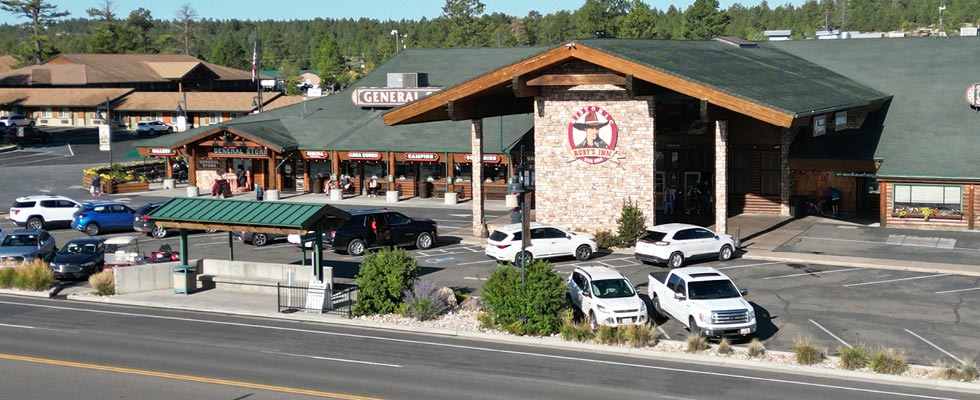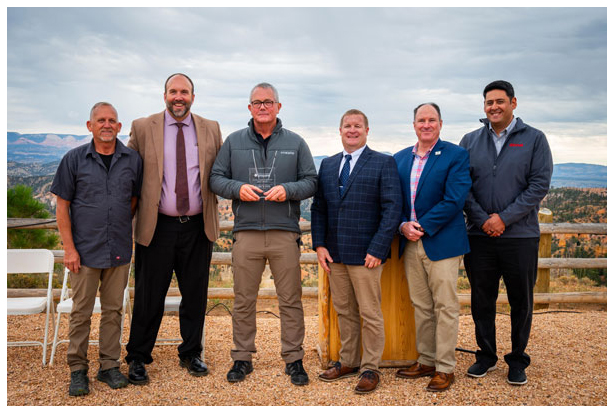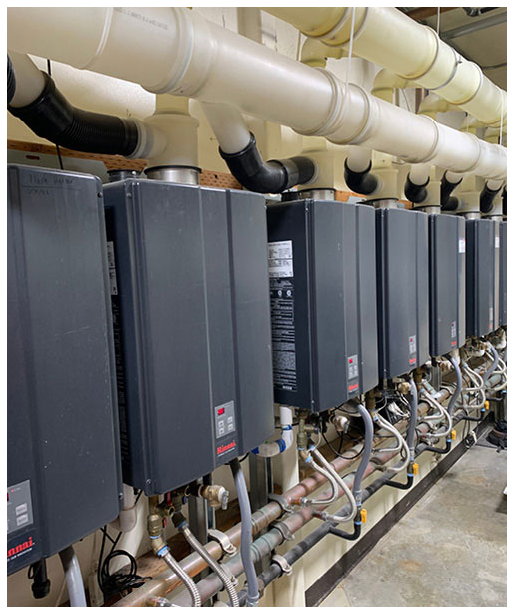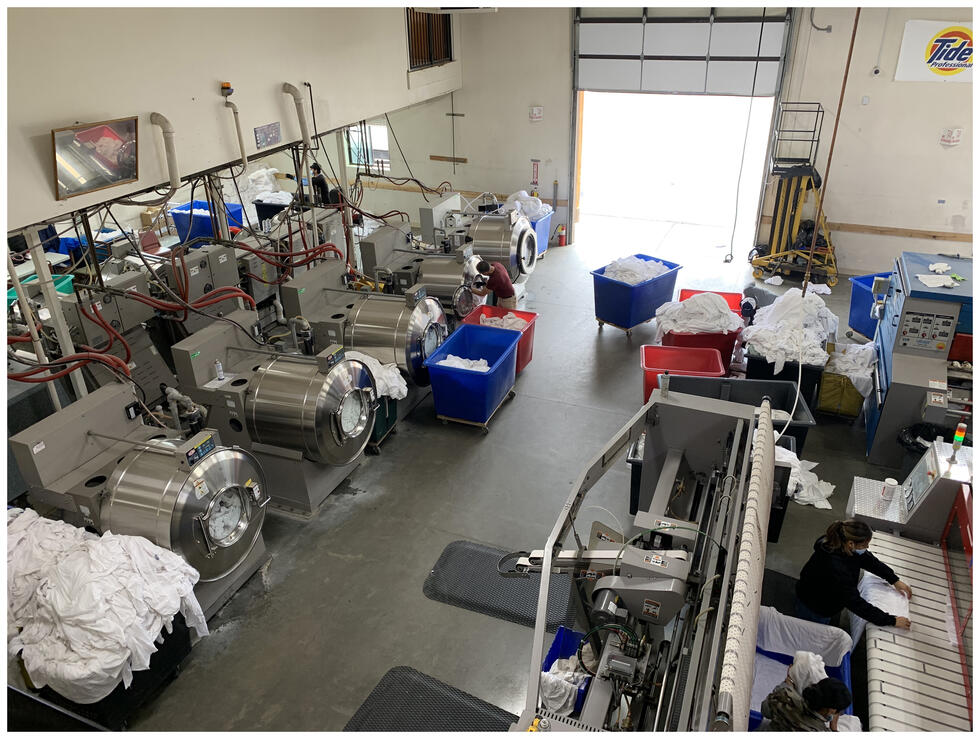

Resting near the edge of Bryce Canyon National Park in Bryce Canyon, Utah, is a place called Ruby’s Inn. This historic inn has humble roots dating before Bryce Canyon was even named a national park. Today, it boasts multiple buildings with almost 700 guest rooms, three popular restaurants, a large on-site kitchen, a laundry facility that handles 19 tons of laundry per day, three swimming pools and hot tubs, a car wash, an RV park, employee housing and three natural wells that supply water to the premises. The hotel welcomes thousands of tourists each day.
With so much to offer visitors, reliable hot water is always in high demand, from hot showers to the culinary water necessary for cooking in the always-busy kitchens. Those hot showers are usually the first thing on guests’ to-do lists due to the chilly nights present even in the summer. In the past, when busloads of guests would arrive, hot water would become a hot commodity — leading Ruby’s Inn to often find itself in a bind.
“The demand for hot showers was a tremendous strain on our old system,” said Ron Harris, health and safety manager for Ruby’s Inn. “Our old system consisted of open flame boilers. … Simply put, the [hot] water ran out. We could not store enough. … One [boiler was] heating that water all the time, 24 hours a day, keeping that water hot in that storage tank. And we still ran out almost every single night, every single morning.”
With the boilers unable to handle the demand, Ruby’s Inn lost approximately $60,000 in customer refunds and suffered one- and two-star customer reviews online for the lack of hot water. For a business that relies on customer satisfaction for its success, this was a huge problem.
That’s how Ruby’s Inn found itself making the switch to tankless water heaters and highly efficient storage tank water heaters from Rinnai — and subsequently winning an Energy for Everyone Hero Award from the Propane Education & Research Council for its commitment to environmental stewardship with the use of propane as a heating fuel.

“When [PERC] looked at the Ruby’s Inn story, we heard of their success with propane,” said Jim Bunsey, PERC’s director of business development, at a press conference for the Energy for Everyone Hero Award in Bryce Canyon. “We’re going to give [this award] because it’s an outstanding organization that has a great success story we can share. … For people who have goals for their energy use and want to start to clean up, switching to domestic propane right now helps them meet their energy goals.”
For Ruby’s Inn, the decision to work with the Rinnai water heaters was about taking care of the environment, as well as the availability of propane in the area.
“By using propane, it’s a lot less demand on the electrical grid,” said Lance Syrett, general manager at Ruby’s Inn and great-grandson of Reuben C. “Ruby” Syrett, the inn’s founder. “If we didn’t have propane, it would really be taxing the electrical system and electrical infrastructure around here. … We just don’t have enough electricity to [rely on] electricity even if we wanted to.”
When the time came to decide on a better water heating system, propane was the fuel of choice and Rinnai tankless water heaters were chosen to manage the inn’s hot water needs. Harris and Karl Munford, chief engineer at Ruby’s Inn, worked with the Rinnai team to develop a plan and push the idea through to the management team and board of directors with a signed guarantee from Rinnai that the system would take care of the inn’s needs. The board approved the $750,000 project because “it just made sense,” according to Harris.
“This was a huge project for Rinnai,” said Michael Prayoonvech, systems design engineering manager at Rinnai. “I was shocked when I came up here to see how many different systems they had. But we walked every one of them because … we want to give the best engineering solutions to our customers.”
With a total of 183 on-demand water heaters currently installed, Ruby’s Inn has saved on propane gallons — dropping from 425,000 gallons to 380,000 gallons last year. And with the built-in redundancies from the Rinnai systems, multiple water heaters could go out and the inn would still not have to worry about losing hot water.

Ruby’s Inn now has hot water on demand year-round for its customers. Not only are the showers always hot, but the culinary water needs in the kitchens are met and the laundry facility is running on higher efficiency than ever before. In fact, the laundry facility is a point of pride for Ruby’s Inn.
Previously, the laundry team had to operate for several extended hours to manage the vast amounts of laundry that needed to be washed, dried, ironed and folded for 700 guest rooms. The laundry facility now functions at a pace of 6,000 sheets, plus towels and additional laundry, within an 8-hour day. Propane powers the hot water in the washing machines, as well as the heat roller machine that dries the sheets. The efficiency and reliability of the propane in the facility provides a more manageable workload to Ruby’s Inn employees.
“As a family business, we like to think that our employees are family as well. If you’ve got happy employees, they make for happy guests. They’re stakeholders in our business just as much as anybody else,” said Syrett.
With propane in its corner, Ruby’s Inn has positioned itself as a prime example of what it looks like to aim for more efficient operations while contributing to environmental stability with the use of clean energy.
“We do not believe Ruby’s Inn would be what it is today if it wasn’t for using propane and having the ability to use propane for all types of our building heating,” said Harris.


